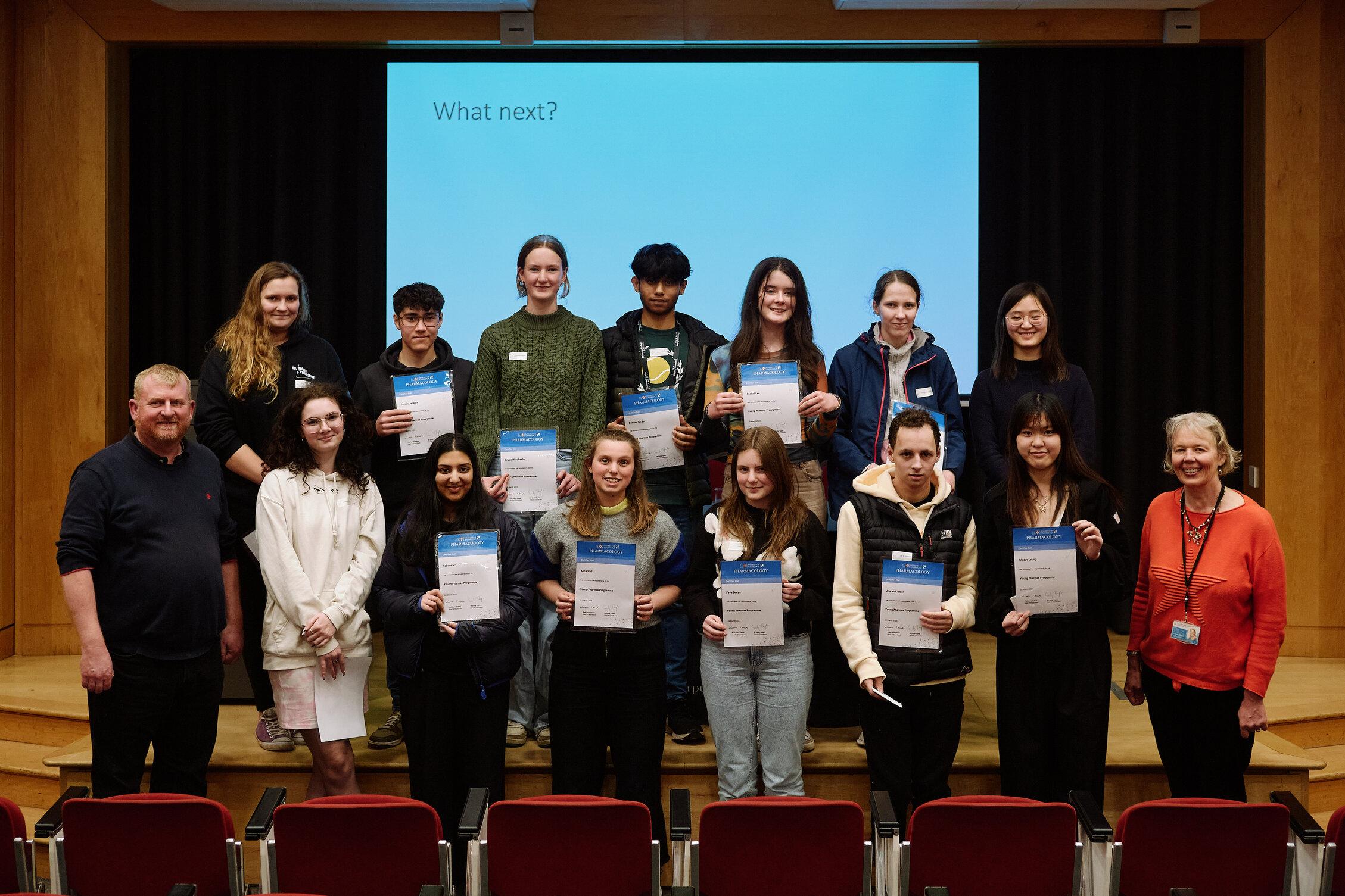
Submitted by D.P. Juan on Wed, 29/03/2023 - 15:20
Over the past three months, sixth formers from Hills Road, Long Road, Camberton and The Oaks have been busy carrying out scientific experiments and investigating key concepts in pharmacology
Sixth-formers have returned to Cambridge University to take part in the Young Pharmas scheme. From Hills Road, Long Road, Camberton and The Oaks, they have been carrying out scientific experiments to better understand key pharmacology concepts.
The outreach scheme is headed by Dr Emily Taylor, a member of Professor Graham Ladds' lab, and supported by a range of researchers and PhD students throughout the Department of Pharmacology. The scheme recently restarted following a period of disruption.
These 17 students took part in hands-on practicals and poster presentations to experience what studying science at University might be like. The practical sessions introduced modern research techniques such as fluorescent labelling along with commonly used tools such as multi-channel pipettes.
These practical sessions focused on discovering how many proteins are in a cell, how viruses infect cells and a simulation of how drugs affect heart contraction.
In the final event of the scheme, the students produced and presented scientific conference-style posters at Corpus Christi College. There, they presented their findings and experiences while fielding questions from an interested audience.
"It is lovely to see how the YP's students became more confident and proficient in performing experiments and scientific calculations as they progressed across the different YP activities. It was especially good to see how their eyes lit up when using the Floid microscope to observe different proteins and how they were arranged in a pulmonary artery endothelial cell" said Dr Taylor.
A final evening was held on the 28th of March at Corpus Christi College. Students presented their findings in the form of a poster session. Congratulations to Tansy Xue, who won the best poster, and Joe McKibben and Gladys Leung, who won the highly commended poster award. Dr David Bulmer then gave a great talk on the causes of Irritable Bowl Syndrome and his lab's progress in researching the disease.
The scheme was well received by the staff, parents and students. The students mentioned how well the demonstrators engaged with them individually. By participating in the scheme, students have been supplemented with the understanding to place scientific research beyond the classroom.
